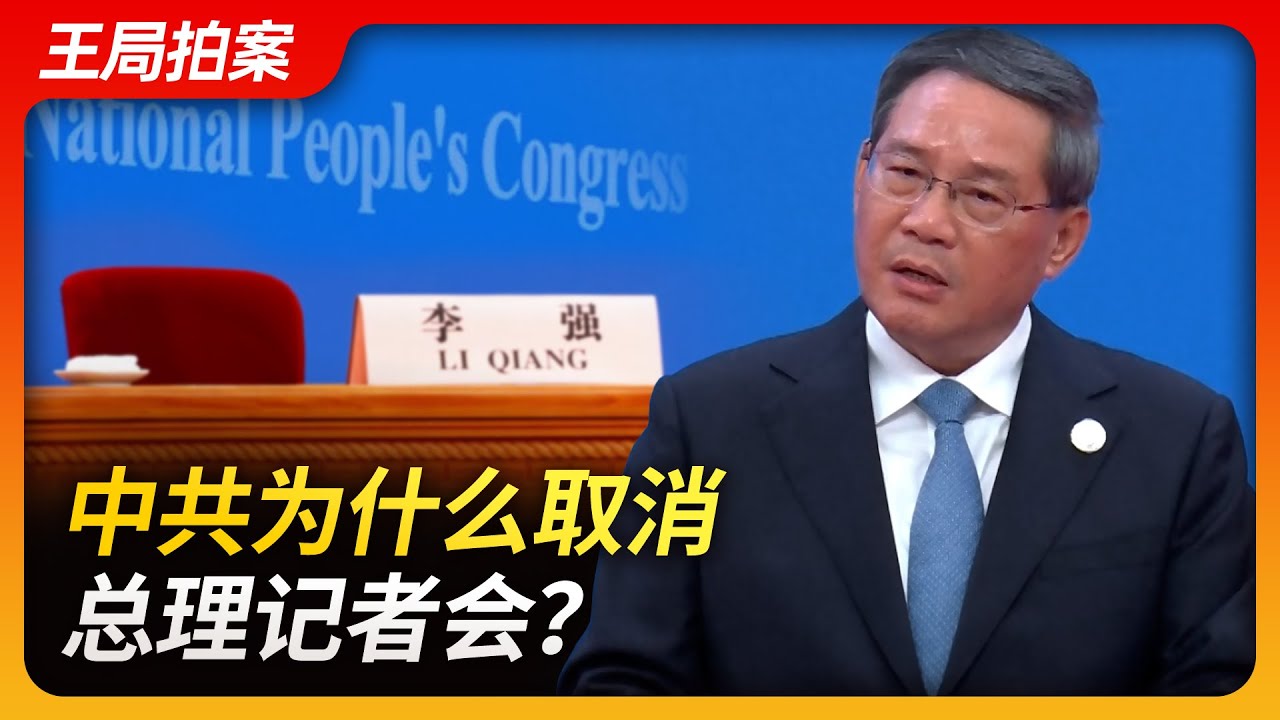新总理李强,他的能力如何,会成为最弱势的总理么?
Summary
TLDR在第14届全国人民代表大会第一次全体会议的第四次会议上,李强成功当选为国务院新任总理。不同于习近平和韩正前一日的全票通过,李强的选举结果显示出三票反对和八票弃权,形成鲜明对比。分析认为,这种选举结果的设计展示了一种聪明的策略,即使存在反对票也不会影响选举结果,反而能减少外界对全票通过的质疑。李强的教育背景和他与习近平的密切关系,以及他在经济发展和改革开放上的立场,被认为是他能够在政治生涯中快速上升的关键因素。此外,李强面临的挑战、他的经济政策方向以及对待外资的态度也在视频中进行了深入讨论,展现了一个面向市场经济、注重法制建设和推动私营企业发展的未来政策愿景。
Takeaways
- 🗓️ 李强于3月11日,在第14届全国人民代表大会第一次会议的第四次会议上,被选为新一任国务院总理。
- 🗳️ 与习近平、韩正和王沪宁等人的选举相比,李强的选举结果有所不同,出现了三票反对和八票弃权,形成了与前一天全票通过的鲜明对比。
- 📚 许多人对李强的教育水平持有疑虑,因为他17岁开始工作,并且在恢复高考后才进入宁波的一所学校学习农业机械,但李强的实践经验和能力被认为更为重要。
- 🌟 李强与习近平的密切关系为他的政治生涯带来了巨大推动,他曾在浙江、江苏和上海等地担任要职,这些地区的私营经济发达,政府官员相对开放。
- 🏭 李强成功将特斯拉的第一个海外超级工厂引入上海,展示了他作为政府官员服务资本家、推动经济发展的能力。
- 📈 在就任国务院总理后的首次新闻发布会上,李强强调了经济发展的重要性,并承诺将继续推进改革开放和支持私营企业的发展。
- 🌍 尽管对美国的态度较为温和,李强未就台湾问题发表具体言论,显示出作为总理,他在某些政策上的发言权可能有限。
- 📉 李强提到了“人才红利”来替代传统的人口红利,这指出了中国面临的人口挑战及其对经济的潜在影响。
- 💼 尽管李强被视为习近平的亲信,能够在关键时刻影响决策,但他作为国务院总理的独立性和影响力仍有待观察。
- 🔍 专家认为,长远看,无论是经济发展还是改革开放,都需要法治和法律体系的保障,这对于私营企业和市场实体尤为重要。
Q & A
李强在哪一天被选为国务院新总理?
-李强在3月11日的第14届全国人民代表大会第一次会议的第四次会议上被成功选举为国务院新总理。
李强的选举与习近平和韩正的选举有何不同?
-李强的选举结果出现了三票反对和八票弃权,与前一天习近平和韩正被一致选举的情况形成了鲜明对比。
国家人大代表投票时的程序有哪些特点?
-近年来的改革下,投票时候候选人的名字已经提前印在纸上。如果支持候选人,则无需书写任何内容。如果要反对或弃权,需要站起来前往设有的秘密投票站进行投票。
李强的教育背景和早年经历如何?
-李强17岁开始工作,最初在一个灌溉站工作。后来在恢复高考后,他到宁波的一所学校学习农业机械。
李强与习近平的关系是如何建立的?
-李强在担任省委秘书长期间,与当时调任浙江省委书记的习近平相遇,并获得了习近平的高度赏识。
李强在担任上海市委书记期间有哪些显著成就?
-李强成功引进特斯拉建立其在上海的第一个海外超级工厂,并且在他的领导下,上海的政府“一站式”服务条件得到显著改善,成为全国排名第一。
为什么特斯拉的超级工厂选择在上海建立?
-李强为特斯拉提供了一系列政策绿灯,包括土地、贷款利率优惠等,成功将特斯拉的第一个海外超级工厂吸引到上海。
李强在总理的新闻发布会上强调了哪些内容?
-李强强调了坚持改革开放,促进经济发展,支持私营企业的发展,以及提出“人才红利”概念。
李强如何看待中美关系?
-李强在新闻发布会上表示,中美有共同的利益,不可能也不应该脱钩,脱钩对双方都不利。
李强成为国务院总理后可能面临的挑战有哪些?
-李强需要在保持经济增长和推动改革开放的同时,应对人口红利减少带来的挑战,以及如何在习近平领导下,保持自己政策的独立性和有效性。
Outlines

This section is available to paid users only. Please upgrade to access this part.
Upgrade NowMindmap

This section is available to paid users only. Please upgrade to access this part.
Upgrade NowKeywords

This section is available to paid users only. Please upgrade to access this part.
Upgrade NowHighlights

This section is available to paid users only. Please upgrade to access this part.
Upgrade NowTranscripts

This section is available to paid users only. Please upgrade to access this part.
Upgrade NowBrowse More Related Video

Tiểu sử tân Chủ tịch nước Tô Lâm | VTC Now

中共是如何将人大变成橡皮图章的?|两会|人大代表|毛泽东|习近平|中共|政协|王局拍案20240311

“Estas lacras no pueden seguir conviviendo con nosotros” - TN / 23/01/2024

中共为什么取消总理记者会?|两会|总理记者会|国务院|李强|习近平|朱镕基|温家宝|李克强|王局拍案20240306

Trump meets with Australia PM Anthony Albanese at White House

极简欧洲政治——欧盟简介、政体分类、议会制度、欧洲议会
5.0 / 5 (0 votes)
